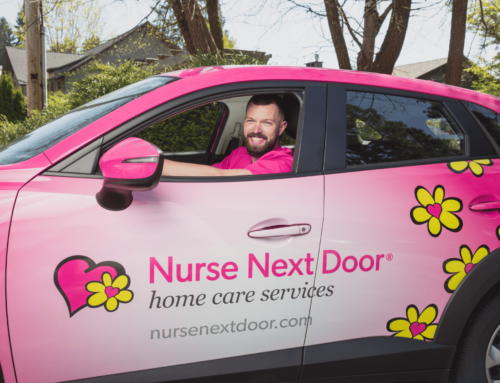Are you skilled in-home health services and determined to start a home health agency in Ohio? Or do you feel this calling towards starting a business with purpose? Well, you are in the right place!

This guide provides the information you need to establish a thriving home health agency in Ohio. From understanding the significant benefits of owning a home health agency to developing impactful marketing strategies, we’ve got you covered.
The Major Benefits of Starting a Home Health Agency in Ohio
Starting a home health agency in Ohio offers many significant benefits to both clients and agency owners. Despite common healthcare challenges, the opportunities and benefits of owning a home health agency make it a worthwhile pursuit.
One major benefit is the increasing demand for home health caregivers and personal care aides in Ohio, providing you the opportunity to meet the growing care needs of Ohio’s aging population. According to the Bureau of Labor Statistics, employment of home health aides and personal care aides in Ohio is projected to grow 36.8% and 35.2%, respectively, between 2019 and 2029.
Ohio’s minimal licensing requirements and fees make establishing a home health care agency straightforward. Lastly, Medicare, Medicaid programs, and private insurance plans in Ohio cover home care services, providing a steady stream of clients, business, and revenue.
Starting a home health agency in Ohio allows you to positively impact your community, provide high-quality care to those in need, and build a successful business that generates steady profits. With realistic expectations and a commitment to superior client outcomes, your home health agency can overcome challenges and thrive in Ohio’s growing healthcare industry.
The Key Steps to Launching Your Own Home Health Agency in Ohio
The essential steps to launching a successful Ohio home health agency include:
Obtaining Licenses, Permits, and Accreditations
To legally and confidently operate a home health agency in Ohio, you will need to obtain a home health agency license from the Ohio Department of Health.
Additionally, you may need to obtain a federal Employer Identification Number (EIN) from the IRS, register your business with the Ohio Secretary of State’s office, and pursue voluntary accreditation from an organization like the Joint Commission or Accreditation Commission for Health Care to demonstrate your agency’s superior standards of medical care.
Ohio’s minimal licensing requirements and fees make it easy to start a home health care agency. The state charges only $250 to apply for a license and has no certificate of need requirement. This reduces regulatory obstacles for entrepreneurs. To apply, submit a completed application and $250 fee. Choose either a non-medical, skilled home health services, or agency license. Agency owners also need fingerprints. Ohio’s straightforward process facilitates home health care business formation. Low fees and no certificate of need remove common barriers.
Identifying Your Unique Value Proposition (UVP)
Identifying your Unique Value Proposition (UVP) is critical in setting your home health agency apart from competitors. Research your competitors and define what makes your home health agency and its various health services stand out. Use this as the foundation for your branding and marketing efforts.
Establishing Your Home-Based Operations
Establish your home health agency’s in-based operations by setting up a system for scheduling client visits, managing client records, and communicating with your staff. Purchase necessary equipment and office supplies and hire administrative staff to manage the day-to-day operations of your home health agency.
Developing Your Business Plan
A business plan is essentially a roadmap for your home health agency. It outlines your business goals, target market, marketing and sales strategies, financial projections, and more. With a comprehensive, professional business plan in place, you can make informed decisions about your business and track your progress toward your goals.
Moreover, a well-written business plan is crucial if you plan to seek financing from investors or lenders. It shows that you have a clear vision for your business, understand the market you are entering and have a solid plan for achieving profitability.
Lenders and investors want to see that you have done your homework and that your business has a high likelihood of success.
Recruiting and Training Your Staff
Your home care agency in Ohio will rely heavily on training your staff. Recruit qualified caregivers and provide them with comprehensive training. Develop a plan for ongoing training and professional development to ensure that your home non-agency providers and care staff remains up-to-date on the latest best practices, procedures, and technologies.
Marketing Your Home Health Services
Once your home care agency in Ohio is up and running, market your services to attract clients. Networking with patients and other healthcare service providers, advertising in local media outlets, and creating a website and social media presence are all effective marketing strategies to pursue.
By following these key steps, you can launch a successful home care agency in Ohio that provides superior home care policies and services to clients. Remember to highlight your distinctive approach to personal care services and what sets your home care business apart from others in your industry to attract and retain customers.
Should You Join a Franchise or Start Your Own Home Health Care Business?
Since you know now how to set up a home health care business in Ohio, it’s important to consider whether to join a franchise or start your own home health care license business. Joining a franchise non-medical home health services can offer benefits such as a proven business model, established brand recognition, and support from the franchisor team. However, starting your own business allows for more flexibility and control over your operations process and services.
If you decide to join a franchise, research franchise options and review franchise disclosure documents carefully. Look for franchises that align with your goals, values, and budget. Consider the franchise fees, royalties, licensing, and ongoing costs, as well as the training and support provided by the franchisor.
If you decide to start your own home care business in Ohio, you will need to develop your own business model, procedures, due process, marketing strategy, and brand. You’ll have complete control over your patient’s home and services, pricing, and hiring practices. However, you’ll also need to invest time and resources into building your brand recognition and reputation.
To Conclude!
To conclude, we hope this article has provided you with valuable insights into the process of starting a home care business in Ohio. Whether you decide to join a franchise or start your own successful home care business, remember to conduct thorough research, obtain the necessary licenses and certifications, develop a comprehensive business plan, recruit and train qualified staff, and market your home health services very effectively.
As a leading home care franchisor, Nurse Next Door can provide you with the support, resources, and guidance you need to launch a successful home health agency in Ohio. We offer a proven business model, extensive training programs, and ongoing support to help you build a rewarding and profitable business that makes a positive impact in your community.
If you’re passionate about helping others and want to make a difference in the lives of seniors and their families, we encourage you to take the first step today by reaching out to Nurse Next Door.
Together, we can create a world where people can age with dignity and purpose—right at home in Ohio.

 x
x







